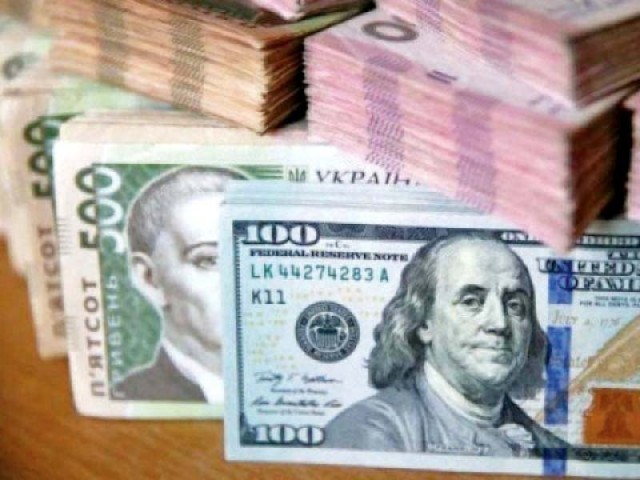Govt imposes 12.5% tax on income from offshore companies
Prime minister’s tax amnesty scheme has also been included in Finance Bill 2018

PHOTO: EXPRESS
These amendments are part of the revised Finance Bill 2018 the federal government submitted in the National Assembly Secretariat on Tuesday. The Bill is expected to be approved either on Wednesday or Thursday, which will mark the approval of the Budget 2018-19 from parliament.
In the revised Bill, the government has also drastically reduced the dividend tax rates for the real estate investment trusts, cutting it down from 25% to 15%. In another significant amendment, the Federal Board of Revenue (FBR) has withdrawn half of the increase in customs duties on import of cooking oil.
Offshore tax amnesty gets political backing
The approval of the Finance Bill will also give permanent legal cover to the tax amnesty scheme, as the government has also made the amnesty package part of the Finance Bill 2018. This is contrary to its earlier decision as the government had tabled four separate bills in parliament to give permanent legal cover to the tax amnesty scheme.
The government has now embedded the tax amnesty scheme on domestic and offshore assets in the Finance Bill 2018, as it faces problems in maintaining the quorum due to defections in the ruling party. The tax amnesty scheme is under implementation since April 10 and will come to an end on June 30. President Mamnoon Hussain had promulgated four Ordinances to give effect to the scheme.
Govt mulls taxing remittances
The government has introduced another main amendment in the original Act. It has allowed the directors to take benefit from the scheme. “Provided that a member of the Board, not actively engaged in the business and day-to-day affairs of the corporations, banks, financial institutions, firms, concerns, undertakings or any other institution or organisation shall not be treated as holder of public office”, according to the new amendment.
The government has also made the amendments in Protection of Economic Reforms Act (PERA) of 1992 part of the amended Finance Bill 2018.
Advisory firm suggests amnesty for undeclared domestic assets as well
The government has also introduced new amendments in the Income Tax Ordinance 2001. It has introduced an amendment in a section related to gain on disposal of assets outside Pakistan and lowered the proposed tax of 15% to 10%.
According to another amendment, the income from an offshore company will be taxed at a rate of 12.5%. The FBR has introduced the concept of the Controlled Foreign Company, as suggested by the Organization for Economic Cooperation and Development through the Finance Bill 2018. But if in subsequent years the controlled foreign company distributes the dividend, the person will be entitled to claim the tax credit on the basis of already paid tax.
Late filers of income tax returns have been given a one-year relaxation through the amended Finance Bill. In the original Finance Bill, the government had proposed that late filers will not be entitled to claim benefits of low tax rates meant for filers and they also cannot avail certain tax credits. Now the FBR has proposed that this clause will take effect from March 2019 when the tax year 2018 Active Taxpayer List is published.
The FBR has also adjusted the super tax rates for the banks in a manner that distribute their tax burden equally over a period of next three years. The decision was taken after a meeting of the banks’ chief executive officers with Finance Minister Miftah Ismail.
The government has retained further tax, which will increase the effective sales tax rate to 20%. The Senate had opposed the increase.
It has accepted the Senate recommendations to strengthen the Alternate Dispute Resolution Mechanism to make its recommendation binding.
The FBR has proposed to cut the dividend income tax on the dividend received by a company from a collective investment scheme (REIT scheme) or a mutual fund from 25% to 15%. It also extended the tax Development REIT Scheme by another two years to 2020 to keep its owners eligible to be taxed at only 50% of the prescribed tax rates.
The government has also exempted the income of Habib University Foundation, Begum Akhtar Rukhsana Memorial Trust Hospital, Al-Khidmat Foundation and Dawat-e-Islami Foundation from income tax.
The government has partially reversed the decision to increase tax burden on cooking oil imports. Against its original proposal to increase the rates by Rs3000 per metric tons, the government has now increased the rates by 1500 or 16.6% on the import of soybean oil.
The new rate will be Rs10,550 per ton. On the import of refined, bleached and deodorised (RBD) palm oil, the government has decided to fix the duty rate at Rs11,700 per ton, which will be 14.7% higher but still lower than originally proposed rates of Rs13,200.
Published in The Express Tribune, May 16th, 2018.
Like Business on Facebook, follow @TribuneBiz on Twitter to stay informed and join in the conversation.


















COMMENTS
Comments are moderated and generally will be posted if they are on-topic and not abusive.
For more information, please see our Comments FAQ